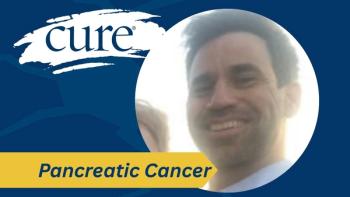
Clinical trials give patients with metastatic breast cancer access to new treatments, all while being closely monitored and moving the landscape forward.

Ryan Scott is an Editor of CURE; she joined MJH Life Sciences in 2021. In addition to writing and editing timely news and article coverage, she manages CURE's social media accounts; check us out @curetoday across platforms such as LinkedIn, Facebook, X, and Instagram! She also attends conferences live and virtually to conduct video interviews and produce written coverage. Email: rscott@mjhlifesciences.

Clinical trials give patients with metastatic breast cancer access to new treatments, all while being closely monitored and moving the landscape forward.

At the 2025 SABCS, researchers presented findings with the potential to meaningfully affect breast cancer treatment and patient care.

Enhertu wins breakthrough therapy designation in some patents with HER2+ early breast cancer who have residual disease following neoadjuvant treatment.

From new drug approvals to real-world insights on quality of life, here are the top 10 cancer care stories of 2025 that stood out for their patient impact.

Stage 3 kidney cancer can be managed with surgery, immunotherapy and targeted therapy; knowing your options helps guide informed decisions.

Patients with stage 3 colorectal cancer who tested MRD-positive with Signatera after surgery saw a meaningful survival benefit from Celebrex plus chemotherapy.

The treatment of advanced HR+ breast cancer care is evolving, with targeted therapies and clinical trial progress offering a better quality of life.

Treatment with the combination of NGC-Cap may increase the cancer-killing power of treatment without adding significant safety concerns.

The FDA has granted approval to Rybrevant Faspro, the first and only subcutaneous therapy for EGFR-mutated non-small cell lung cancer.

Padcev plus Keytruda demonstrated clinically meaningful and statistically significant improvements in event-free survival and overall survival for MIBC.

The FDA granted orphan drug designation to GSK’227, now known as risvutatug rezetecan, for the treatment of small-cell lung cancer.

At the 2025 ASH Annual Meeting and Exposition, researchers presented new findings that may meaningfully affect how patients with blood cancers are treated.

A potential new approach to treating advanced pancreatic cancer has shown benefit for patients, according to Dr. Eileen M. O'Reilly.

Wendy and Larry Brooks share their journey with small cell lung cancer, emphasizing the importance of screening, as well as advocacy for patients and caregivers.

Most premenopausal women with early breast cancer accepted GnRHa during chemotherapy to preserve ovarian function; cryopreservation uptake was lower.

The FDA granted review to a supplemental biologics license application for Opdivo plus chemo for previously untreated stage 3/4 classical Hodgkin lymphoma.

Dan, diagnosed with stage 4 pancreatic cancer, shares his journey to remission and insights on clinical trials and patient advocacy.

Nuvisertib plus momelotinib is safe and generated improvements in symptom burden, spleen volume, and anemia outcomes in relapsed/refractory myelofibrosis.

Lore Gruenbaum, chief scientific officer of Blood Cancer United, sat down for an interview with CURE to discuss the themes shaping blood cancer care today.

TARA-002 may offer meaningful benefits for patients with non-muscle invasive bladder cancer, including those who have limited treatment options.

Stage 1 myelofibrosis is a manageable early-stage blood cancer that requires ongoing monitoring and personalized care to support long-term health.

The U.S. commercial launch of LYMPHIR offers a new treatment option for patients with relapsed/refractory stage 1 to 3 cutaneous T-cell lymphoma.

In November 2025, the FDA issued multiple oncology approvals that expanded treatment access for patients with breast, lung, blood and solid tumor cancers.

Although most patients with localized kidney cancer have high cancer-specific survival, surveys show a gap between doctor and patient perceptions of cure.

Meta: Stage 1 essential thrombocythemia is a chronic blood disorder with high platelets, manageable through monitoring, medication, lifestyle and care.

CURE sat down with Dr. Daniel J. Boffa to discuss the current treatment landscape of lung cancer care in recognition of Lung Cancer Awareness Month.

Dr. Daniel J. Boffa discusses advancements in lung cancer care, including the role of minimally invasive surgical techniques and new systemic therapies.

Dr. Lanyi Nora Chen, sat down for a live interview with CURE, in which, she shares her advice for newly diagnosed patients with lung cancer.

Dr. Li-Shiun Chen sat down with CURE to discuss study findings that overturn long-held assumptions about the impact of smoking cessation in cancer care.

Stage 1 polycythemia vera is manageable with monitoring, phlebotomy, medication and lifestyle changes, allowing patients to live healthy, normal lives.